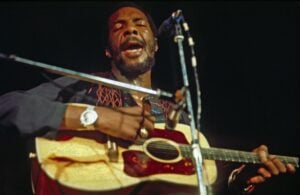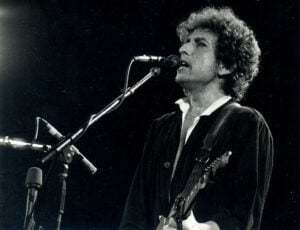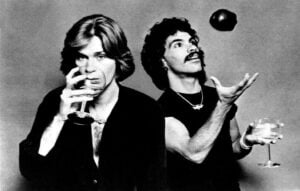Songs You Probably Didn’t Know Were Written By Paul McCartney

via @old_juice_ / Instagram
Paul McCartney’s legacy as a musical force is etched into history, but there’s a lesser-known side to his brilliance that often slips under the radar. Beyond the countless classics he penned for The Beatles and his expansive solo catalog, McCartney quietly handed off songs to other artists—some of which became beloved hits, others deep cuts waiting to be rediscovered. These aren’t just B-sides or leftovers; many are fully-formed gems tailored for voices beyond his own.
During his most prolific periods, McCartney’s songwriting output outpaced even his own discography. Whether by choice or circumstance, a number of his creations found their way into the hands of other musicians, sometimes subtly and sometimes with surprising flair. It’s a testament to his musical generosity and confidence, trusting that someone else could carry the spirit of his song just as well—or in a completely new direction.
Unlike modern hitmakers known for writing across genres and artists, McCartney’s behind-the-scenes contributions aren’t part of his public persona. Yet they exist, scattered across albums and decades, occasionally turning up in unexpected places. Some of these tracks might sound familiar; others may leave you stunned that they ever came from McCartney’s pen.
View this post on Instagram
10. Everly Brothers – “On The Wings Of A Nightingale”
By the time Paul McCartney wrote “On The Wings Of A Nightingale,” he was already decades into his legendary career. But in 1984, he offered this jangly, feel-good track to the Everly Brothers, a duo that heavily influenced The Beatles in their early years. It was a full-circle moment: one of the greats paying tribute to the artists who shaped his sound.
The song served as a comeback single for the Everly Brothers, marking their reunion after a decade-long split. With its buoyant melody and acoustic charm, McCartney’s songwriting breathed new life into their return. It may not have stormed the charts, but it did receive critical praise and was lauded as a perfect fit for their signature harmony.
McCartney didn’t just write the song—he was reportedly involved in its production as well. This quiet gem is a great example of his enduring generosity as a songwriter, using his talent not for show, but to lift others up, even decades after Beatlemania had passed.
9. The Applejacks – “Like Dreamers Do”
Before the world knew the name Paul McCartney, he was already writing songs like “Like Dreamers Do” during his teenage years. The Beatles performed it during their failed Decca audition in 1962, but it didn’t officially see the light of day until The Applejacks recorded and released it in 1964.
Though not a household name, The Applejacks brought McCartney’s early songwriting style to the forefront. The track carries a wistful, almost innocent quality that’s unmistakably rooted in the early ’60s Merseybeat sound. It became a modest hit in the UK, helping The Applejacks earn some visibility thanks to the McCartney connection.
This song shows just how prolific McCartney was even as a young songwriter. “Like Dreamers Do” wasn’t just a cast-off—it was a clear display of melodic instinct and romantic lyricism that would define so much of his later work.
8. Cilla Black – “Step Inside Love”
“Step Inside Love” started as a simple request: Cilla Black needed a theme song for her TV variety show. Paul McCartney delivered more than just a jingle—he wrote a smooth, inviting tune that perfectly captured Black’s friendly persona and the feel of late-’60s British pop.
Black recorded the song in 1968, and it quickly became one of her signature tracks. The melody is elegant and accessible, showcasing McCartney’s knack for tailoring his songwriting to match an artist’s strengths. It wasn’t a chart-topping smash, but it lived on as a beloved piece of Black’s repertoire and a standout in her catalog.
Interestingly, The Beatles even toyed with the song themselves during the White Album sessions, recording a loose and sultry jam version. That brief detour proved just how versatile the song really was, and how deeply McCartney believed in its core melody.
7. Billy J. Kramer with the Dakotas – “Bad To Me”
“Bad To Me” may sound like a Billy J. Kramer original to many casual listeners, but it was actually written by McCartney (with Lennon’s help) during The Beatles’ rise to fame. It was given to Kramer in 1963 and ended up becoming a number one hit in the UK.
The song is a classic slice of early British pop, brimming with teenage yearning and catchy hooks. Kramer’s boyish charm matched the song’s tone perfectly, and the result was a clean, radio-friendly hit that helped cement his place among the top Merseybeat acts of the time.
McCartney didn’t record the song with The Beatles, but a demo version of him singing it has since surfaced. It’s a fascinating listen—not just for its historical value, but as a reminder of how effortlessly McCartney could generate hits, even when they weren’t for himself.
6. Peter & Gordon – “Nobody I Know”
Peter & Gordon were a recurring outlet for McCartney’s non-Beatles songs, thanks in part to the fact that Peter Asher was the brother of McCartney’s then-girlfriend, Jane Asher. “Nobody I Know” was one of several hits the duo enjoyed courtesy of McCartney’s songwriting talents.
Released in 1964, the song is a soft, sentimental ballad that reflects the gentler side of McCartney’s musical personality. It climbed to number 10 on the US Billboard Hot 100, confirming his ability to churn out hits regardless of who performed them.
Despite its understated nature, the song is deceptively smart in its structure and pacing. It’s easy to imagine it slipping seamlessly into an early Beatles album, yet Peter & Gordon’s harmonies gave it a distinct identity of its own.
5. Mary Hopkin – “Goodbye”
Following the massive success of her debut single “Those Were the Days,” Mary Hopkin was under pressure to deliver a worthy follow-up. Paul McCartney, who had taken her under his wing on the newly formed Apple Records, stepped in with “Goodbye,” a gentle, bittersweet tune that showcased Hopkin’s folk-leaning voice and charm.
Released in 1969, “Goodbye” reached number two on the UK charts and cracked the top 20 in the US. The song’s acoustic arrangement, lilting melody, and nostalgic lyrics made it another strong entry in Hopkin’s short but impactful career. While she didn’t write the track, her delivery made it feel deeply personal.
McCartney originally recorded a demo of the song himself, which has since become a fan favorite for its stripped-down intimacy. The fact that even his offhand demos can become treasured pieces of pop history speaks volumes about his melodic instincts—and his generosity in giving a song like this away.
4. Cilla Black – “It’s For You”
When Cilla Black needed a song to push her growing career even further, Paul McCartney delivered “It’s For You”—a theatrical, almost cabaret-style track with intricate chord changes and bold melodic shifts. Co-written with Lennon but primarily driven by McCartney, the song was tailored to highlight Black’s strong vocal presence.
Released in 1964, the song reached the UK top 10 and marked one of the more sophisticated pieces in Black’s discography. It didn’t sound like a typical Beatles track, which made it all the more interesting—it was evidence that McCartney was already experimenting with broader musical ideas outside the band’s usual framework.
Though not often cited among his greatest hits, “It’s For You” remains a standout in McCartney’s early non-Beatles output. It reflects his deepening confidence as a songwriter who could write beyond his own voice, crafting music that felt theatrical, soulful, and striking.
3. Badfinger – “Come And Get It”
“Come And Get It” is a curious McCartney track in that it was written, demoed, and produced entirely by him—but released under someone else’s name. When Apple Records needed a hit for the emerging band Badfinger, McCartney handed them this perfectly crafted pop single.
The demo version, recorded by McCartney in a single take, was essentially the blueprint. He told Badfinger to stick closely to it, and they did—resulting in a top 10 hit in both the UK and US. With its pounding piano, catchy hook, and bright harmonies, the song became one of Badfinger’s signature tracks.
It’s a fascinating case of McCartney playing puppet master behind the scenes. He not only gave them the song but also shaped its sound and ensured its success. “Come And Get It” stands as proof that sometimes, McCartney’s B-material is stronger than most artists’ A-game.
2. The Rolling Stones – “I Wanna Be Your Man”
Few people associate the Rolling Stones with Paul McCartney, but one of their earliest hits was, in fact, a Beatles castoff. “I Wanna Be Your Man” was written by Lennon and McCartney in the early days and gifted to the Stones in 1963, before they had a single top-ten hit.
The Stones’ version is rougher and more aggressive than the Beatles’ own later recording, leaning into the bluesy swagger that would soon define them. This song gave the Stones a key early boost, landing them in the UK top 20 and helping to solidify their presence in the British rock scene.
It’s a striking moment in music history—two bands who would soon be seen as rivals, briefly connected through a single song. McCartney’s decision to give away a tune that could have easily fit in The Beatles’ early catalog reveals a spirit of camaraderie before the competition really heated up.
1. Peter & Gordon – “A World Without Love”
Topping the list is “A World Without Love,” a song Paul McCartney wrote as a teenager and later handed off to Peter & Gordon. Despite its youthful origins, the song was a monster hit, reaching number one in both the US and UK in 1964 and becoming one of the biggest non-Beatles successes of McCartney’s songwriting career.
What makes this song stand out is how effortlessly it combines innocence with melancholy. Lines like “Please lock me away / and don’t allow the day / here inside, where I hide” struck a chord with listeners, capturing the vulnerability of young love in a way only McCartney could.
Interestingly, The Beatles never recorded the song, likely because Lennon wasn’t fond of it. But that didn’t stop it from becoming a defining hit for Peter & Gordon. It remains a striking example of McCartney’s melodic genius—proving he didn’t need the Beatles brand to create a timeless pop classic.






















